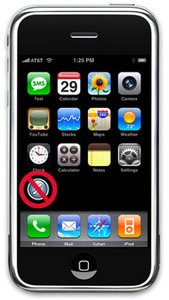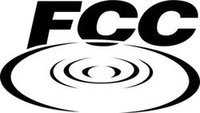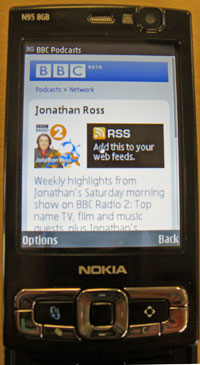 The jockeying for position is over. It’s time for the U.S. carriers, the world’s handset manufacturers, and third-party application developers to innovate the mobile wireless future.
The jockeying for position is over. It’s time for the U.S. carriers, the world’s handset manufacturers, and third-party application developers to innovate the mobile wireless future.
Today the U.S. Federal Communications Commission announced that the big winners in the 700 MHz wireless spectrum auction were, indeed, Verizon and AT&T, the two biggest players in the industry.
Verizon won the coveted C-block for $4.74 billion, besting Google’s bid of $4.71 billion. Going into the spectrum bid, which began at the end of January, many industry followers had hoped that Google would take its bid seriously as a way to shake up a stagnant industry.
 Google committed to bidding the minimum of $4.66 billion, which triggered a rule that the winner of the 700 MHz C-block spectrum would have to open its network to any device, any application. Just by bidding, Google dictated the new rules of the game — rules that Verizon must now follow.
Google committed to bidding the minimum of $4.66 billion, which triggered a rule that the winner of the 700 MHz C-block spectrum would have to open its network to any device, any application. Just by bidding, Google dictated the new rules of the game — rules that Verizon must now follow.
 AT&T won 227 regional licenses around the U.S. Those licenses, along with the piece of the 700 MHz puzzle it already owned, allows AT&T to further enhance the quality and reliability of its existing network and wireless broadband.
AT&T won 227 regional licenses around the U.S. Those licenses, along with the piece of the 700 MHz puzzle it already owned, allows AT&T to further enhance the quality and reliability of its existing network and wireless broadband.
“It means that the two big guys just got much bigger,” Rebecca Arbogast, an analyst with Stifel Nicolaus, told Reuters.
It also means that the jockeying for position is now officially over. The remainder of 2008 will be for the carriers, handset manufacturers, and application developers to introduce their initial products — and you can bet these will be far from perfect. There will be missteps, misfirings, false starts, claims of so-and-so being unfair, buggy software, crappy hardware, and disappointment, but these are the growing pains of an industry in transition
2009 is still the Year of Wireless.
For now, with the auction over, here’s how the U.S. wireless industry shapes up for the remainder of 2008.
Continue reading »
 Joost (last100 review) is planning to let viewers access its Internet TV service via a Web browser, rather than requiring them to download and install the current Mac/Windows application, according to Portfolio.com.
Joost (last100 review) is planning to let viewers access its Internet TV service via a Web browser, rather than requiring them to download and install the current Mac/Windows application, according to Portfolio.com. The jockeying for position is
The jockeying for position is  Google committed to bidding the minimum of $4.66 billion, which triggered a rule that the winner of the 700 MHz C-block spectrum would have to open its network to any device, any application. Just by bidding, Google dictated the new rules of the game — rules that Verizon must now follow.
Google committed to bidding the minimum of $4.66 billion, which triggered a rule that the winner of the 700 MHz C-block spectrum would have to open its network to any device, any application. Just by bidding, Google dictated the new rules of the game — rules that Verizon must now follow. AT&T won 227 regional licenses around the U.S. Those licenses, along with the piece of the 700 MHz puzzle it already owned, allows AT&T to further enhance the quality and reliability of its existing network and wireless broadband.
AT&T won 227 regional licenses around the U.S. Those licenses, along with the piece of the 700 MHz puzzle it already owned, allows AT&T to further enhance the quality and reliability of its existing network and wireless broadband. Courtesy of the
Courtesy of the  Updated: Adobe says it will need Apple’s support to bring Flash to iPhone (see end of post).
Updated: Adobe says it will need Apple’s support to bring Flash to iPhone (see end of post). I know you can’t wait — it’s better than who is going to make it to the Final Four. OK, not really, but the largest and most lucrative wireless spectrum auction in U.S. history ended today, and we’ll know within 10 days who won the
I know you can’t wait — it’s better than who is going to make it to the Final Four. OK, not really, but the largest and most lucrative wireless spectrum auction in U.S. history ended today, and we’ll know within 10 days who won the  It comes as no surprise. Apple is said to be in discussions with the major record labels to allow customers unlimited access to the entire iTunes music library in exchange for paying a premium for iPod and iPhone devices.
It comes as no surprise. Apple is said to be in discussions with the major record labels to allow customers unlimited access to the entire iTunes music library in exchange for paying a premium for iPod and iPhone devices. The BBC continues to ramp up its mobile efforts with targeted versions of its podcast directory for Sony’s PlayStation Portable (
The BBC continues to ramp up its mobile efforts with targeted versions of its podcast directory for Sony’s PlayStation Portable ( Apple is gambling against Flash. Microsoft is hedging its bet.
Apple is gambling against Flash. Microsoft is hedging its bet. A little over six months after first being announced (
A little over six months after first being announced (